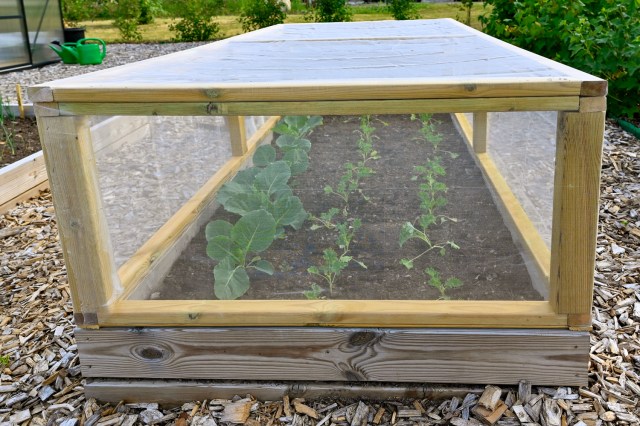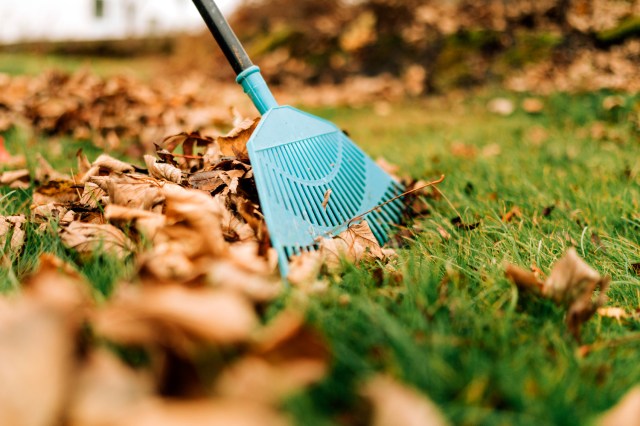Many of nature’s creatures have beneficial roles inside your garden. Take, for example, earthworms. These wiggly invertebrates break down organic matter that provides nutrients for your plants, while their burrows keep soil light and fluffy for delicate roots. However, not every crawling, flying, or tunneling critter is a welcome visitor to your backyard plot. Many species of grubs, beetles, slugs, and caterpillars can cause immense damage and, on occasion, completely undo the hard work you’ve put into your garden space. Fortunately, there are ways to keep pests at bay.
All featured products and deals are selected independently and objectively by the author. Better Report may receive a share of sales via affiliate links in content.

Make a Homemade Pest Spray
Try as you might, some pests will get through your defenses. However, you don’t have to reach for pesticides when encountering a smattering of bug eggs or larvae on your plants. Some at-home remedies can be just as effective, like an insecticidal soap made from 2 teaspoons of dish soap and 1 pint of water to kill off soft-bodied insects. Another option is blending 1 teaspoon of neem oil spray with 1 quart of water to kill off aphids, mealybugs, and other pests. Both options are free from health-hazardous residues and can effectively debug your garden space when used regularly, leaving it comfortable to enjoy all season long.

Cover Your Crops With a Cover or Cloche
Creating a physical barrier from pests is another option. Mesh row covers are light and breathable fabrics that allow sunlight and airflow but block insects from accessing plants. Row covers come in all sizes, though occasionally, you may just need to cover one plant. That’s where garden cloches come in handy. These bell-shaped domes can keep out various insects and are easily maneuverable in smaller spots. But know that using row covers all season long can impact your plants’ ability to bloom or produce fruit, since these barriers can also keep important pollinators away from buds, so use row covers and cloches with this in mind.

Plant Bug-Repelling Plants
Companion planting — aka nestling two different species together in a beneficial way — is one strategy for repelling bugs from your favorite plants. Basil’s aromatic oils can deter flies and mosquitoes, while catmint keeps aphids, squash bugs, and a wide variety of beetles at bay. Cultivating herbs like oregano, mint, rosemary, and thyme throughout your garden, particularly next to delicate plants, can help stop cabbage moths, carrot flies, and even some caterpillars like corn earworms and tomato hornworms from nesting.
Reader Favorites

Select Pest-Resistant Plant Species
Insects are like humans in that they have discerning diets — not every bug eats every plant. For example, squash bugs, which get their name from the damage they do to summer squash, pumpkin plants, and other cucurbits, often steer clear of zucchini and cucumbers. Selecting varieties of plants that can better tolerate — or altogether avoid — the worst pests in your area can help you harvest more fruits, vegetables, and flowers throughout the season with less frustration.

Get to Know Your Region’s Common Pests
You can’t stop pests in their tracks if you don’t know about them. While many North American insects have a wide range, inhabiting gardens and wild spaces from coast to coast (such as aphids), some regions are more prone to specific insects. You can learn more about the most common pest problems by contacting a local horticultural group, master gardeners’ service, or extension office, which can advise you on how to best combat tough species.

Keep Your Garden Debris-Free
Decaying leaves and garden matter don’t just look unsightly—they can also attract and harbor insects that cause garden problems. Eliminating garden debris each fall removes a spot where bugs can burrow in over winter and emerge in the spring. Horticulturists recommend placing any debris in a compost pile, which will generate enough heat to destroy larvae and other harmful bacteria.
Featured Image Credit: Tashi-Delek/ iStock
More From Our Network
Better Report is part of Inbox Studio, an email-first media company. *Indicates a third-party property.

















